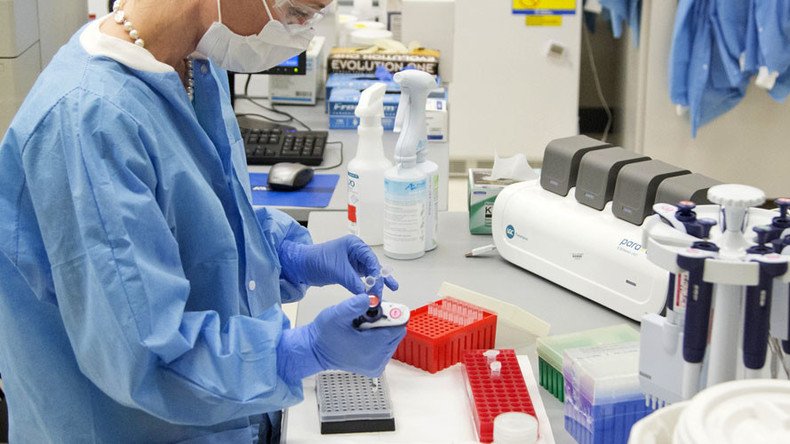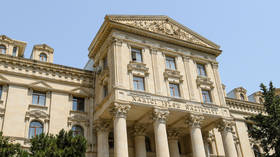Biochemists watch gene expression in real time - study

The fundamental rule of molecular biology is “DNA makes RNA makes protein,” but up until now biochemists haven’t “seen” it in action, as Albert Einstein College scientists did by adding codes of fluorescent proteins into live cells and neurons.
Albert Einstein College scientists were trying to overcome two challenges – finding a way to visualize single molecules of messenger RNA, or mRNA, as well as single molecules of protein translated from mRNA. Proteins perform most cellular functions and are the reason we are all alive.
“Translation is the fundamental biological process for converting mRNA’s information into proteins,” said the paper’s co-author, Dr. Robert Singer, who is co-chair of anatomy and structural biology and co-director of the Gruss Lipper Biophotonics Center at Einstein.
In scientific first, researchers visualize proteins being born https://t.co/j56B3lMkIH@EinsteinMed
— Phys.org (@physorg_com) May 6, 2016
For the first challenge, Dr. Bin Wu, the lead author of the study, adapted a technique from an earlier paper published in 1998 that visualized single molecules of mRNA in living cells. By adding “mRNA that codes for red fluorescent protein” to a retrovirus and inserting it into cells, the translation could be seen.
For the second challenge, Dr. Wu used a recently published technique to encode single-chain antibodies fused to green fluorescent protein to bind to a newly formed protein, “making the protein visible.”
Visualizing the birth of proteins 🔬 https://t.co/WsXx5zKTlf
— Carolina (@CaroElisco) May 6, 2016
Dr. Singer explained, “We know from genome-wide studies that translation controls protein abundance in cells – crucially important to every single function that cells carry out. Using this technology, we can finally learn how translation is regulated and gain major insights into diseases that occur when translation is faulty.”
'Compact & durable’: Scientists encode, retrieve 10,000 gigabytes stored on DNA moleculeshttps://t.co/SDOUu4pux0pic.twitter.com/GdfskSipLh
— RT America (@RT_America) April 9, 2016
The scientists observed the translation of single messenger RNA molecules in two types of cells: human cancer cells and mouse neurons. Then they made a surprising discovery. When they looked at the translation in mouse neurons, they noticed “mRNA translation into protein was found to occur in ‘bursts’ – a phenomenon never before possible to observe,” according to the Einstein statement.
“Bursts of translation activity may be the best way for neurons to control the amount and location of protein production – and neurological disease may result from neurons’ inability to control that bursting,” said Dr. Singer. “So our findings may have implications for intellectual disorders such as Fragile X Syndrome, which seem to involve too much protein production, and possibly for neurodegenerative disorders such as Alzheimer’s in which clumps of beta-amyloid protein may block neuron-to-neuron signaling at synapses.”
1000+ yr shelf life: Microsoft buys into synthetic DNA for data storagehttps://t.co/xFzWUzSRWkpic.twitter.com/TM1QDB2E7d
— RT America (@RT_America) April 29, 2016
When researchers looked at mRNA translation in cancer cells, they noticed that they “displayed a striking inability to regulate the translation of mRNA… instead it was [a] continuous process in these cells.”
“Since proteins play crucial roles in controlling division, the uncontrolled translation of certain proteins may lead to certain types of cancer,” stated Einstein College.
“With our technology, researchers can now study disease-causing protein aberrations at a very basic level that was never possible before,” said Dr. Singer.
The paper entitled “Translation dynamics of single mRNAs in live cells and neurons,” was published in Science on Friday.












